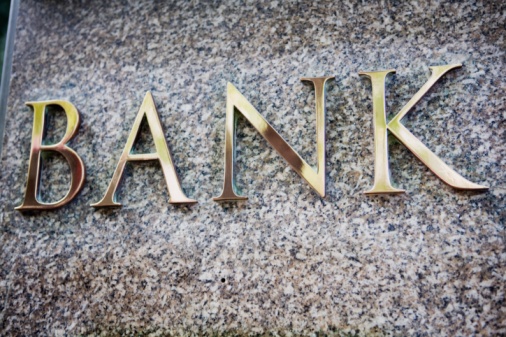Banking, finance, and taxes
Have the Biggest US Banks Really Been Nationalized Already?
Published:
Last Updated:
When investors and financiers hear the term “nationalization,” there almost never anything good that comes to mind. So what are investors, and depositors for that matter, supposed to think when a well-known and influential equity analyst said that the big U.S. banks have already been nationalized? Dick Bove, who covers the banking sector for Rafferty Capital Markets, was predicting which banks might do better this earnings season.
While he said that he thinks Wells Fargo & Co. (NYSE: WFC) will have done better than the other big banks, Bove told CNBC in his live interview that he thinks the biggest banks in America have effectively already been nationalized.
Bove went on to say that he thinks the regional banks are the ones doing the actual lending now. The big money center banks are reliant upon other avenues for revenues, and with trading and underwriting having been weak in the third quarter, Bove would rather own SunTrust Banks Inc. (NYSE: STI) over JPMorgan Chase & Co. (NYSE: JPM).
Again, the term “nationalization” never sits well with investors. And in this spirit and with this theme in mind, Bove did not exactly telegraph that the United States has seized the banks in a formal takeover. His words are an implied nationalization, pointing to forcing them to pay for things not tied to their operations.
ALSO READ: Merrill Lynch Very Positive on the Mega-Cap Bank Stocks
Bove’s view now is that investing money should go to the regional banks rather than the money center banks. Regional banks are actually loaning the money now, and depositors at the big banks are not having their traditional reserve capital and base of operating capital used for traditional banking.
One such instance on the nationalization front was that the Highway Safety legislation the government is arguing that since they offer FDIC insurance they have the right to invade the banks by taking bank revenues to repair the highways.
And on the path of nationalism and socialism, Bove laughingly said:
Unfortunately, I believe the banks have been nationalized. I believe we are well on the road to socialism in terms of the way we’re taking money flows out of the banking system and putting it into the government. And now we are going a step further; we are taking the actual revenues out of the banks and we are saying that has to be used to fix highways.
As far as how the banks were doing on Monday, SunTrust Banks was up by 0.4% at $39.57 in midday trading. Its consensus analyst price target is $45.98 and its 52-week trading range is $33.97 to $45.84.
Wells Fargo shares were up 0.2% to $52.24, with a consensus target of $46.44 and a 52-week range of $46.44 to $58.77.
JPMorgan was actually down by 0.5% to $61.64. Team Jamie Dimon’s bank has a consensus price target of $73.36 and a 52-week range of $50.07 to $70.61.
ALSO READ: 8 Fresh Analyst Stock Picks With 50% to 100% Upside
If you think nationalization is good, here is how Investopedia defines the term:
Refers to the process of a government taking control of a company or industry, which can occur for a variety of reasons. When nationalization occurs, the former owners of the companies may or may not be compensated for their loss in net worth and potential income.
Nationalization is most common in developing countries subject to frequent leadership and regime changes. In these instances, nationalization is often a way for a government to expand its economic resources and power.
Are you ahead, or behind on retirement? For families with more than $500,000 saved for retirement, finding a financial advisor who puts your interest first can be the difference, and today it’s easier than ever. SmartAsset’s free tool matches you with up to three fiduciary financial advisors who serve your area in minutes. Each advisor has been carefully vetted and must act in your best interests. Start your search now.
If you’ve saved and built a substantial nest egg for you and your family, don’t delay; get started right here and help your retirement dreams become a retirement reality.
Thank you for reading! Have some feedback for us?
Contact the 24/7 Wall St. editorial team.